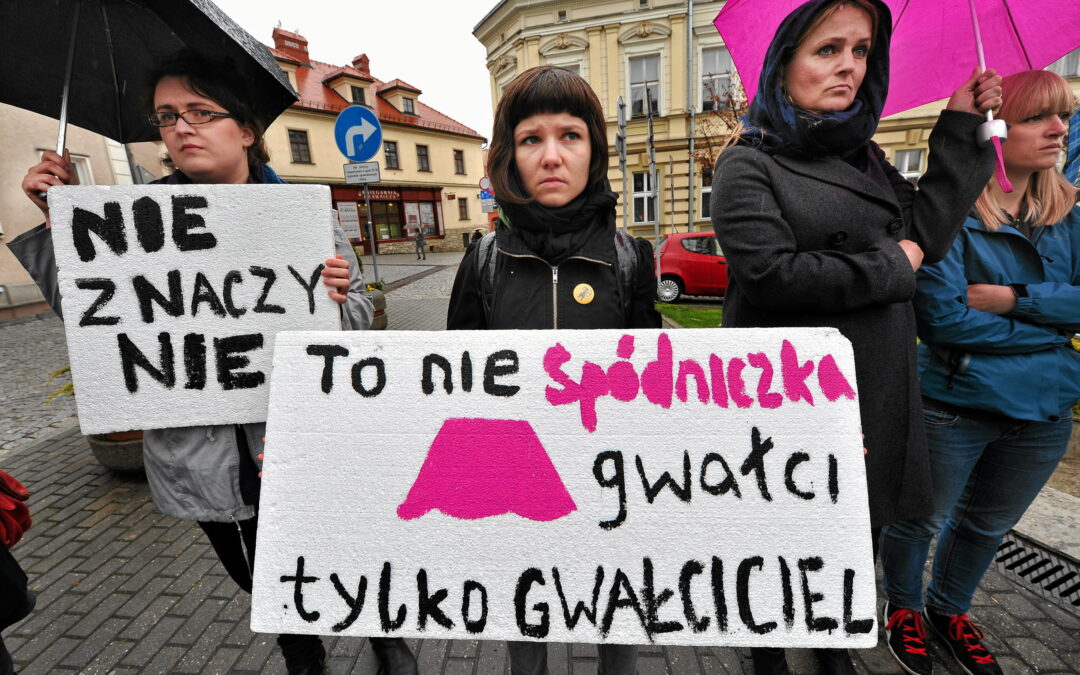NOV 27, 2020

The Polish left has launched an effort to expand the legal definition of rape in Poland to include cases where there is a lack of explicit consent.
“There must be a change so that it is not the rape victim who has to prove that she defended herself,” says Anna Maria Żukowska, spokeswoman for The Left, which is the third largest group in parliament. “Anyone who has not obtained clear and conscious consent to sexual contact is to be held criminally responsible.”
Currently, Polish law classifies rape as an act that subjects another person to sexual intercourse through force, unlawful threats or deception. It does not specify lack of consent as a criterion.
Earlier this year, that resulted in a court overturning a rape conviction against a man because his 14-year-old victim did not resist. The judges deemed that rape did not occur “because my client did not scream, which means that the perpetrator did not use violence”, said the victim’s lawyer.
The Istanbul Convention on preventing violence against women defines sexual violence as including “non-consensual” sexual acts. Poland is a signatory to the convention, but has not yet fully implemented it.
In August, the justice minister began the process of seeking to withdraw Poland from the convention, saying that it “promotes LGBT” and arguing that Poland’s existing laws already protect women.
Żukowska said that The Left “want to implement all the provisions of this convention, one of which is to change the definition of the crime of rape”, reports Dziennik Gazeta Prawna.
“There must be a radical change so that it is not the victim who has to prove that she was…defending herself and that she did not want sexual context,” added Żukowska.
Some commentators responded negatively to the proposal. Waldemar Kuczyński, a former minister, expressed concern that the wording of the proposed legislation would “allow any man to be charged with rape unless he asks the lady for permission in writing or secretly records the whole event”.
Responding to such criticism, Anna Błaszczak-Banasiak, a lawyer from the office of Poland’s human rights commissioner, said that such language is necessary to allow people who were drugged, unconscious or drunk to show that they could not give informed consent.
Żukowska noted that many EU countries, including the UK, Germany and Greece, have laws defining rape as meaning sex without consent.
There has been no response yet from the government or ruling party to the proposed change in the law. The left-wing MPs did, however, welcome the recent introduction of a law, authored by the justice ministry, that will allow police to immediately remove those suspected of domestic violence from the home. It enters into force on 30 November.
Daniel Tilles
Daniel Tilles is editor-in-chief of Notes from Poland and assistant professor of history at the Pedagogical University of Krakow. He has written on Polish affairs for a wide range of publications, including Foreign Policy, POLITICO Europe, The Independent and Dziennik Gazeta Prawna.
No comments:
Post a Comment